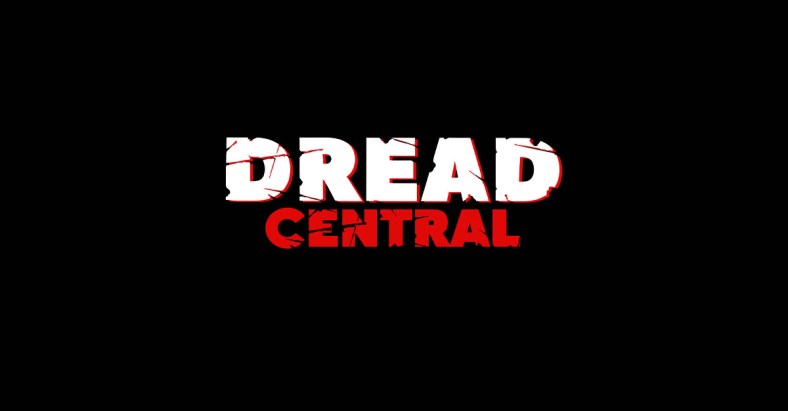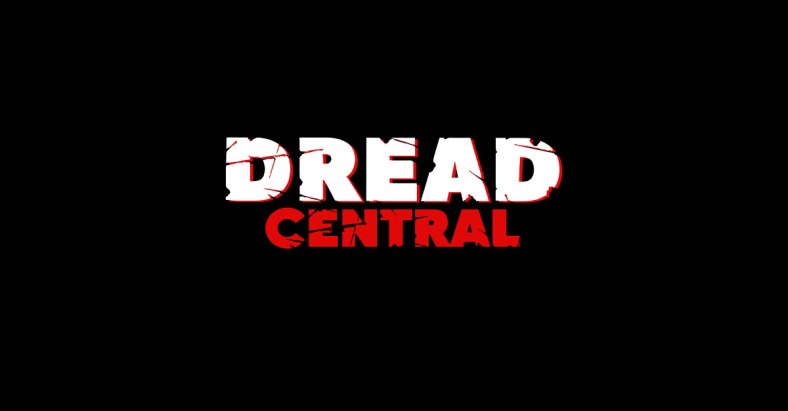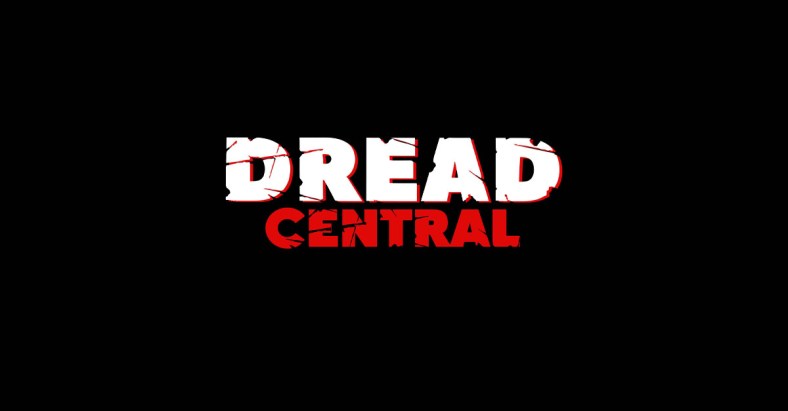Horror Business: MISFITS Guitar Hero, Doyle Wolfgang Von Frankenstein (Interview)

Anyone who’s known me for more than ten minutes knows that The Misfits are my favorite band of all time.
Since I was a little kid, something about their sound, songs, lyrics, and the mood of their music, moved always moved me. As a band, they were able to take such outrageous horror-based subjects like aliens, zombies, serial killers, ghosts and vampires, and churn out songs that were so hard-hitting, so catchy, and so much goddamn fun!
They say never meet your heroes, but I can tell you that Doyle is without a doubt one of the kindest, coolest, and most inspirational rock stars out there. At 55 years old, he is putting out albums, doing tours around the world, and is probably in better shape than any rockstar of all time. He’s also an outspoken vegan and advocate for animal rights.
Possibly one of the most meaningful things about Doyle is the example he sets for his fans. He rocks hard, is always working, is committed to an intensively healthy lifestyle, and has what appears to be a deeply loving and committed relationship with Alissa White Gluz from Arch Enemy. Overall, he’s a really balanced and inspirational individual which, for a rock star of his stature, is a rarity.

In this interview, we get into a lot of fun stuff about music, his new albums, his recording style, and The Misfits. In related news, The Original Misfits, including Doyle, Glenn Danzig and Jerry Only, are currently on tour. Check out tour dates here. And Doyle is on tour with Life of Agony in the UK this year.
As always, before we begin, here’s a recap of Doyle’s key takeaways for musicians (and artists of any kind):
Do you. Don’t get too caught up with (music) theory. Doyle knows two guitar chords–that’s it. A 30+ year career entirely built on TWO GUITAR CHORDS. But, as you can see, he can do a lot with those two chords. It hasn’t limited him in the slightest as he has a very distinctive guitar sound. So find your style and forget everything else. If it sounds good stick with it.
Focus on output. Every time Doyle picks up a guitar he aims to write something new. He doesn’t spend a lot of time practicing scales or other people’s songs. When he sits down to play, he aims to be productive and create. There’s a big lesson in this, and that is to focus on output. It’s so easy to get lost in theory and practice, and nobody is knocking that. But, if you’re serious about music, make sure when you pick up a guitar you’re getting down to business and actually making songs.
Stay in character. For heavily theatrical acts like The Misfits, Kiss, Slipknot, Alice Cooper, and Marilyn Manson, it’s important to uphold the aesthetic and remain in character. Doyle talked about how goofy it was when Kiss took off their makeup on TV. If you have a stage persona, remain in it as much as possible. It makes you more mysterious, and ultimately, it’s way more fun for the fans.
Dread Central: Doyle, thank you for doing this, man.
Doyle: You’re welcome.
DC: First of all, I think your Instagram page might be one of my favorite things on the internet.
DWVF: Oh, cool.
DC: Yeah, being able to see your creative process and seeing you on the road and all that is super-duper cool. But at the same time, I think that you are one of the most inspirational people in music.
DWVF: Me?
DC: Particularly in the punk rock community.
DWVF: Okay.

DC: It’s true. We get to see your healthy lifestyle. We get to see how hard you work. You inspire people to be healthy. We get to see how dedicated you are to veganism. And then we get to see this beautiful relationship that you and Alissa have, and you guys support and respect each other so much. It’s really, really inspirational, and I gotta thank you for setting such a good example.
DWVF: Cool, yeah, thanks.
DC: So, when you started putting out your own albums, you started your own label with Monsterman. What led you to start your own label?
DWVF: It’s the paying for the recording. You go in a studio and you’re recording for weeks. It’s so expensive. It’s $1000 a day or more sometimes, you know? So I just bought all the gear I needed to do it at home, so if I suck that day, I stop. Then I come back the next day. And you can sit there in your underwear and fucking just do it. Nobody’s stressing on you. Nobody’s like, “Come on, hurry up, do it,” you know? My thought was, if you have a good, clean, digital sound, you can mix it. It’s digital. Which I don’t like. I’d rather go on tape, but where are you gonna do that anymore?
DC: Yeah. So you and Alex Wolfman record everything remotely for the most part?
DWVF: What happens is, I’ll make him a demo of a new song. I’ll program all the drums. I’ll play the bass and the guitar, and I’ll make a sheet for him. Then I tell him, “Do whatever you want,” because sometimes he’ll sing on a riff. He’ll see something different and make it better. I never changed one thing he did, he never changed one thing I did. I send him what I send him, he sends it back. That’s it. Working with him is great, because he’s a songwriting machine, you know? Oh, it’s insane. He’s got a band called Cancerslug. He must have 400 songs, and they’re all good.

DC: I think there’s something really interesting about an artist’s creative process. How do you write songs?
DWVF: Every time I pick a guitar up, I try and write something new, because why am I gonna play something I’ve already played? I can practice that when I have to practice that, you know what I mean? So every time, I try and write something. Sometimes you’ll write the whole song right in a row, and your mind’ll blow because the thing that is hard to remember is the right hand, not the left hand.
It’s the rhythm. You can remember what you did with your left hand, but you go back to play it the next day, if the rhythm’s wrong, all of a sudden it sucks and you’re like, “Why was that so good?” It was this hand. So sometimes I’ll take the recorders and I record a riff, I put it down, I say what the notes are so I don’t have to figure it out again, and I forget about it.

It’s not in my brain anymore. It’s instantly out of my brain. I don’t have to remember it, and then I go back through the library. Then I’ll look through that and just piece the songs together.
DC: That’s cool. Actually, when I started learning to play guitar, I learned Misfits songs first.
DWVF: Me too. Same.
DC: Haha! We got that in common. To this day I still mostly down-stroke.
DWVF: Yeah, me too.
DC: And I stick to the first two strings. You pretty much taught me how to play guitar, so I also really have to thank you for that.
DWVF: A lot of people can’t do that.
DC: Yeah, but I pretty much learned that way. It’s a totally different speed and energy.
DWVF: It’s a totally different animal. A lot of people can’t play The Misfits songs, period. They don’t have the fucking groove. A lot of drummers can’t even play. To me, it’s simple as hell. It was just the first thing I learned. It’s like your ABCs, you know what I mean? And a lot of people can’t play it, and it blows my mind. I’m like, “You can play all this double bass, intricate fucking arpeggios, G clefs and all this fucking sweeping shit, but you can’t play this?”
DC: Seems like the simplest thing. It’s like doing Ramones songs.
DWVF: Yeah. A lot of people can’t play them either.
DC: Yeah. What are you working on now?
DWVF: Just writing. I got at least 10-12 things I have to demo, give to Alex to finish, and we’re putting a record out. We got a couple tours.
DC: So you were in one of Rob Zombie’s last music videos. Do you want to do more music video stuff or any kind of acting?
DWVF: I would love to be in some horror movies. I always told him (Rob Zombie), “If you’re doing a monster movie, I wanna be a monster, especially if there’s full body prosthetics. I’ll wear it 24 hours a day. Just feed me.” Then he calls me up, he’s like, “You wanna be a monster in my video?” I’m like, “Yes I do. Are you gonna feed me?” He goes, “Yes I am.” Then I came down and did it. Yeah.

DC: That’s super cool. One of the things I thought was really, really interesting about you is you’re really protective of your image. You never appear out of makeup. And you see the Kiss guys. like Gene Simmons, do interviews without the makeup on, but you always, always stay in character. How did you develop such a respect for the image?
DWVF: You know what it is? I remember watching Kiss take their makeup off on TV and everybody laughed. You could hear the people in the room laughing. I was like, “Why did they take that off? That was a bad move.” I don’t want people to see me in my Clark Kent because I don’t like to get noticed.
DC: Are you thinking of taking on other bands under your label, or is it strictly for you and your material?
DWVF: We took one on called Element A440 and Dead Girls Corp.
DC: So you’ve been in the music business for a long time, and you’ve seen many different phases of it. What advice would you give to musicians and bands nowadays who want to make a name for themselves?
DWVF: I’ll start from the beginning. I would say, if you were a little kid starting and you want to be a musician–say you’re 13 or 15. Don’t sit in your room and learn arpeggios and G clefs and all that fucking horseshit.
DC: Right. It’s all that theory and not enough execution.
DWVF: It’s a bunch of horseshit. You sit there and you learn everybody else’s shit. Fuck everybody else’s shit. Just fucking write your own shit, man. Study song structure. Learn how to write great songs. Get a great fucking singer, and get a look. You don’t have to be the greatest guitar player.
DC: Yeah. I think there’s really something to be said for that. Do you think it’s valuable to learn other people’s songs so you can start doing your own stuff?
DWVF: I only know the shit I play. I don’t know anything else.
DC: Yeah. It’s important to develop a style, and I feel like a lot of music teachers don’t teach that.
DWVF: They can’t teach that. The only thing that could teach you that is you fucking around by yourself. All you really need to know is what the notes are on those strings. One or two chords, that’s all. I still know fucking two chords, that’s it!
DC: You do a lot with two chords!
DWVF: Yeah, you can do a lot with two chords. There’s only twelve fucking notes.

DC: Yeah. And you’ve built a real signature sound that way. I know you customize your guitars and your amps, but at one point you mentioned that your sound all comes down to how you actually play.
DWVF: Everybody holds the strings differently. I could take Eddie Van Halen’s guitar, his amp, and I’ll sound like me. And he could take mine and sound like him.
DC: So it’s the way you hold the strings and the energy that you bring to it.
DWVF: It is. It’s so weird. The angle of your pick, it’s everything.
DC: Do you work with a producer?
DWVF: I’m the producer.
DC: Is there anybody in any creative capacity who just observes you guys and says, “Hey, maybe try this, try that?”
DWVF: No, it’s me and Alex, that’s it.
DC: Nice. There’s gotta be a real magic to that synergy.
DWVF: Yeah. You know what you like. You know what’s good. You know what’s right. You know what’s wrong. I had this guitar tech that went to MIT, the guitarist school, and I write a solo and he goes, “Oh, it’s wrong.” I’m like, “No, it’s not.” One of my solos. “It’s wrong.” I’m like, “No, it’s not. That’s what I heard in my head. I figured it out, that’s what it is.” He goes, “Yeah, but it’s wrong.” I’m like, “No, it’s right. You’re teching for me. I don’t know a fucking thing and you’re teching for me.”
DC: Right, that’s what all that music theory does to you. You lose touch with the actual feeling of music.
DWVF: Nothing is wrong. Whatever you wanna do, that’s what you do.
DC: Yeah, as long as it sounds good.
DWVF: If it sounds good to you, it’s right. You gotta like it. That’s the thing.
DC: Awesome. On that note, this was a real pleasure, Doyle. Thank you. I’ve been staying pro up until this point, but I’ll tell you, The Misfits are my favorite band of all time. This is a huge honor for me, and like I said, you pretty much taught me how to play guitar. You got me into writing songs. The work that you’ve done has really, really enabled me as an artist, and I gotta thank you for that, and for so many years of so much good music, man. Thank you.
DWVF: Cool, man. Thank you.
To hear the full, unedited interview, check out The Nick Taylor Horror Show podcast interview with Doyle here.
Categorized: News
